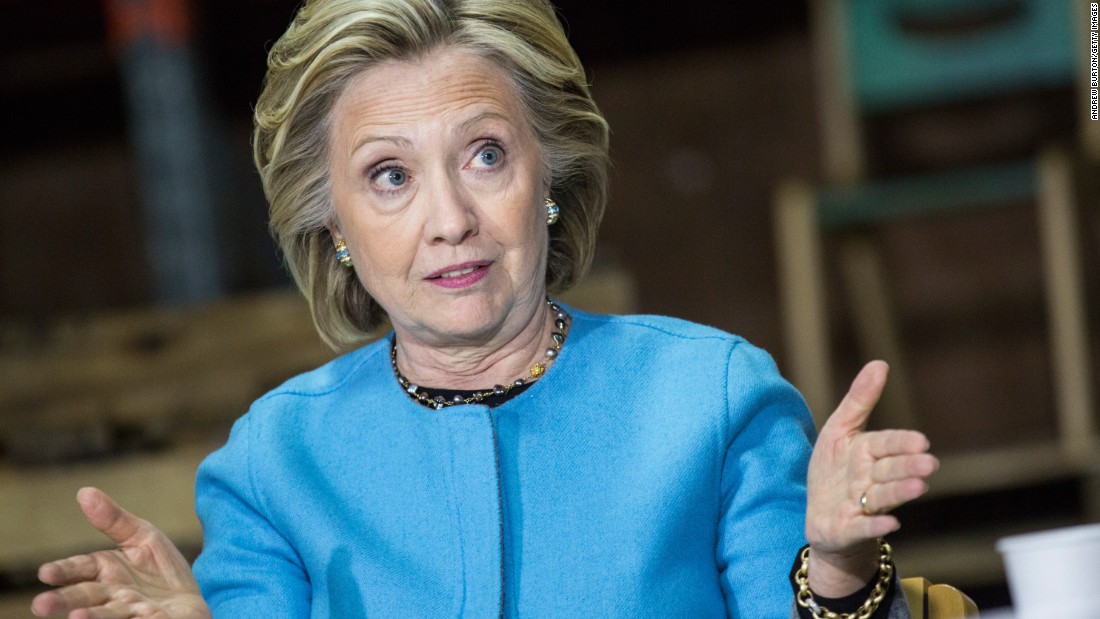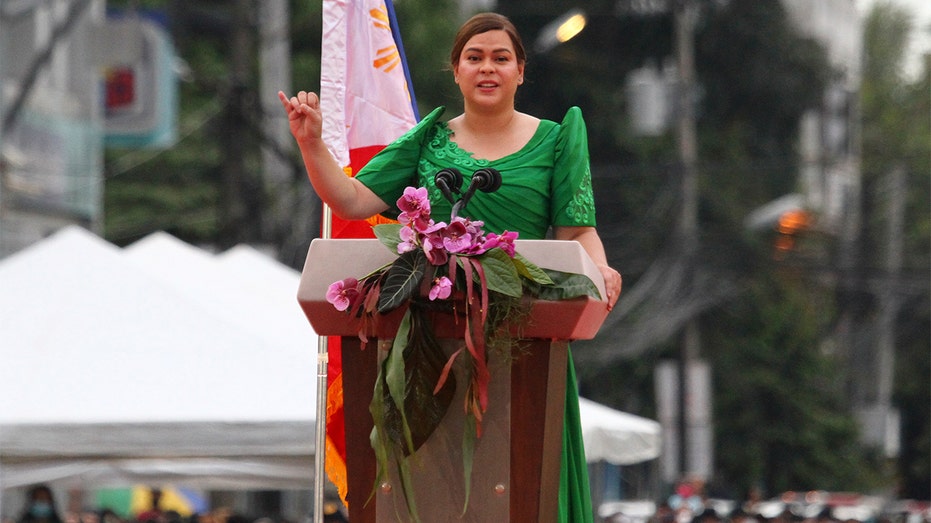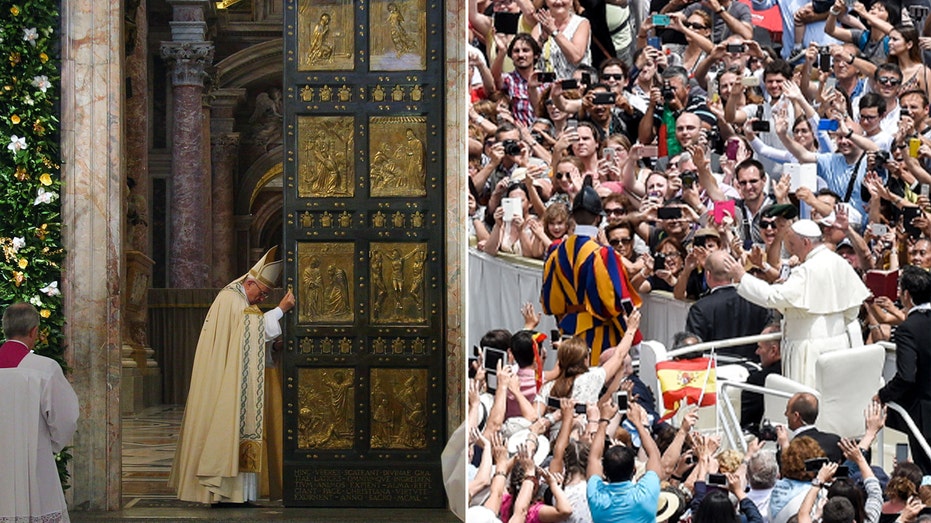- by foxnews
- 24 Nov 2024
Former Colombian ambassador pushes back against allegations in 'Clinton Cash'

The former Colombian ambassador to the United States is pushing back against new allegations that donations to the Clinton Foundation swayed an important 2011 trade deal with the South American country.
Politico reported last week that "Clinton Cash," the new book by conservative author Peter Schweizer, alleges that Hillary Clinton changed her position on the U.S.-Colombia Free Trade Agreement after a donation by Canadian magnate Frank Giustra.
The Clinton campaign has pushed back against the book, as has Giustra.
READ: Clinton Foundation admits mistakes
And now, in a statement provided to CNN on Monday, Gabriel Silva, the Colombian ambassador to the United States at the time the trade deal was signed, says the reported allegations in "Clinton Cash" are "inconsistent with the facts and an affront to the hard work undertaken in both Colombia and the United States to negotiate, complete and ratify an agreement."
Reached by phone in Colombia on Monday, Silva, who also served in the same ambassador role in the mid-'90s, said he had not read the book but had seen reports that it questioned the approval process around the free trade agreement.
"As Colombia's ambassador to the United States during the free trade agreement's ratification in the United States Congress, I saw no evidence that any part of the treaty was impacted by any contribution made to the Clinton Foundation or any other group in the United States," he said.
Silva resigned his ambassador post in 2012, after the trade deal was approved. Silva also served as Colombia's minister of national defense from 2009 to 2010, said the last time he spoke with Clinton was at the 2012 Summit of the Americas in Cartagena, Colombia, and that he even while he served as ambassador, he had very few direct interactions with her.
The U.S.-Colombia Free Trade Agreement dates back to 2004 and was first negotiated by former President George W. Bush's administration. In 2008, Bush gave the Democratic Congress, which opposed the deal, a 90-day ultimatum to approve it, arguing that ratification would "advance America's national security interests in a critical region" and "strengthen a courageous ally in our hemisphere."
The ultimatum did not move Congress, however, and the deal was not approved before Bush left office.
Democrats were, at the time, against the deal because of human rights concerns in the South American country, as well as general unease from union members about what free trade deals meant for U.S. workers and wages. On the 2008 campaign trail, both Obama and Clinton spoke out against the proposed agreement.
Obama told a union audience in Pennsylvania that he rejected the deal "because the violence against unions in Colombia would make a mockery of the very labor protections that we have insisted be included in these kinds of agreements."
"As I have said for months, I oppose the deal," Clinton said at a meeting of the the Communications Workers of America in April 2008. "I have spoken out against the deal, I will vote against the deal, and I will do everything I can to urge the Congress to reject the Colombia Free Trade Agreement."
But once Obama entered the White House in 2009, he worked with the office of the U.S. Trade Representative on the unaddressed agreement. As Obama's secretary of state, Clinton supported the deal, and her State Department worked to approve the agreement.
The Obama administration finalized the deal in 2011, and it went into effect in May 2012.
The Obama administration said in 2011 that the President's position changed because the agreement was renegotiated to increase labor rights commitments. Because of the deal, 80% of U.S. exports of consumer and industrial products to Colombia became duty-free, as will more than half of U.S. exports of agricultural commodities.
According to Politico, "Clinton Cash" alleges that Clinton changed her positions on the free trade agreement because of the more than $100 million in donations and commitments Giustra made to the Clinton Foundation in 2007, the same year that Pacific Rubiales, a pipeline company that the mining magnate was involved with, signed a pipeline deal with a Colombian state-owned energy company.
"Other media outlets have insinuated that I influenced the decision by the U.S. to sign a free trade agreement with Colombia," Giustra said in a statement posted last week. "At one point, I was an investor in Pacific Rubiales, a Colombian energy company. I sold my shares in Pacific Rubiales several years before the U.S.-Colombia Free Trade Agreement, which, I will note, was approved by several U.S. agencies and the White House. To theorize that I had anything to do with that is sheer conjecture."
Giustra looms large in the new book that has tested Hillary Clinton's second presidential run and put the campaign into a defensive posture.
Silva, who is now out of government, said that the U.S.-Colombia Free Trade Agreement was far too complicated to have the donations of one man sway the negotiations.
"It is a difficult and demanding process," he said of the negotiations. "Allegations that President Obama or former Secretary of State Clinton completed the final U.S. step in enabling the agreement to come into force because of financial contributions made to the Clinton Foundation are unfounded."
Former members of Obama's White House team - who are supportive of Clinton's 2016 campaign - have also questioned the idea that one person would be able to sway an entire trade deal.
"That's absolutely ridiculous," Stephanie Cutter, Obama's former deputy senior adviser, said Sunday on CNN. "I worked on the Colombia free trade deal for years. And if one person could put their finger on the scale, believe me, I would have found that. It just was not possible."
- by foxnews
- descember 09, 2016
Italy expected to draw travelers by the millions as Pope Francis kicks off Holy Year
The 2025 Jubilee will bring tourists to the Vatican, Rome and Italy to celebrate the Catholic tradition of patrons asking for forgiveness of sins. Hope will be a central theme.
read more


